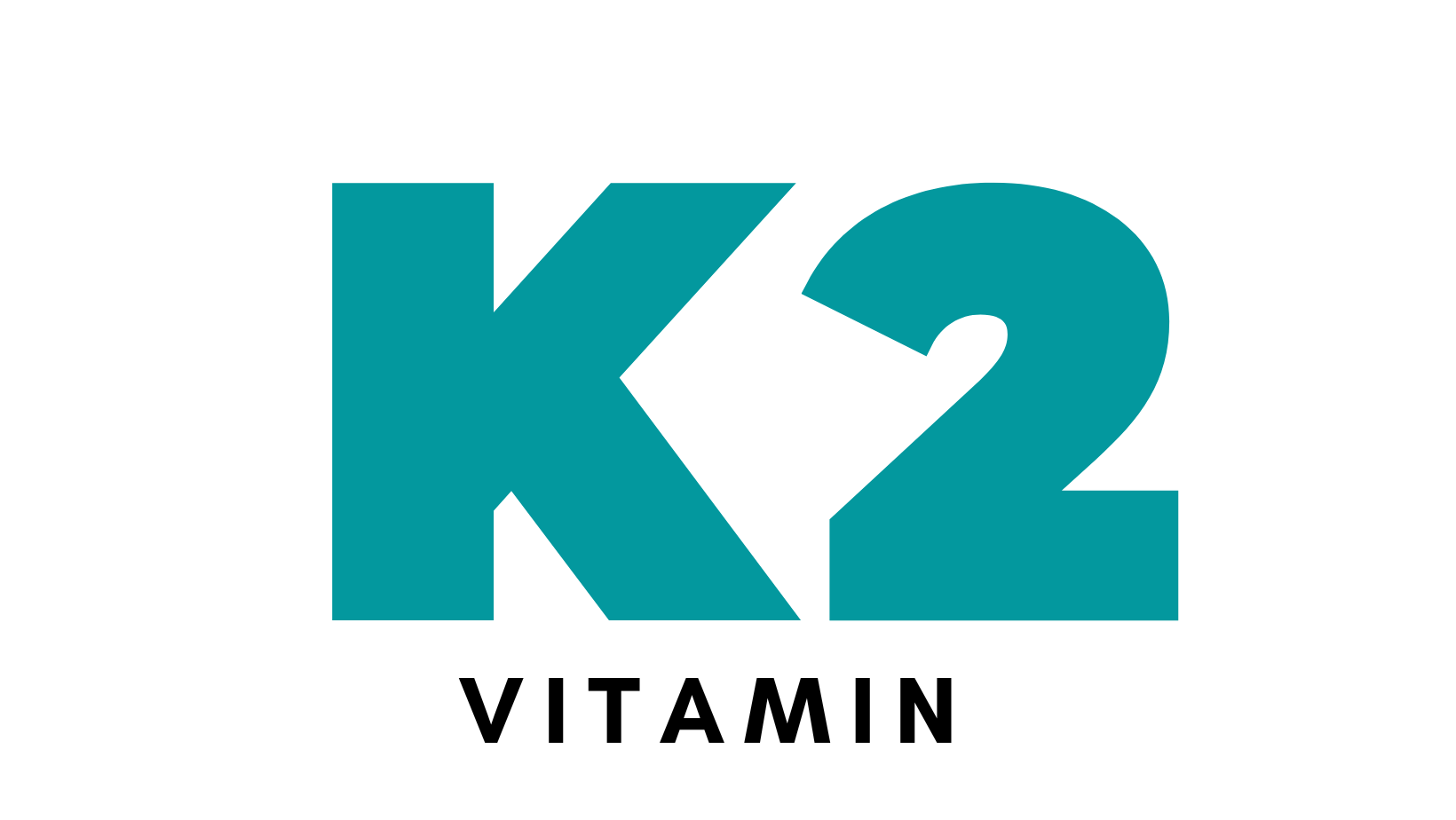
The Surprising Benefits Of Vitamin K2 Supplementation
Most Americans know the benefits of vitamin D3 supplementation, but most don't have a clue about the benefits of vitamin K2 supplementation.
Vitamin K2 is one of the most important and under-recommended supplemental vitamins in the U.S.
At Health As It Ought To Be, we believe it to be an integral part of a full regimen of supplements; so much so, our first manufactured supplement was vitamin K2.
If you have a few moments, I'd like to take some time to prove to you why, if you're not already taking vitamin K2, you should.
I'll also show you why, if you're currently supplementing with vitamin D3 and aren't taking vitamin K2, you could be doing more damage than good.
I'll also show you the easiest ways to get more of it in your diet.
But before I show you all that good stuff...
Why You Need To Know the Differences In Vitamin K2
Alright - before I go one sentence further, let's just talk about vitamin K in general.
First off, there are two different types of vitamin K; these are K1 and K2.
Don't get me wrong - vitamin K1 is really important, but it's not the focus of this blog post. Vitamin K1's essential in the formation of blood clots, so it's not to say you don't need it. The thing about vitamin K1, though, is most people get plenty of it in their diet via leafy greens and fortified foods (which is not the preferred source).
On the other hand, most people's diets don't contain nearly enough vitamin K2, and that's why there's such a deep need for a supplement.
When we talk about vitamin K2, there are a few different versions of the vitamin. For the purposes of this article, anytime I refer to vitamin K2 I'll be referring to a form called vitamin K2 MK-7.
Why only this form?
Because it's the most potent and most bioavailable form of vitamin K2. The other kinds (known as MK-4, MK-8 and MK-9) aren't ideal from a bioavailability standpoint. They have shorter half-lives, meaning they lose potency rather quickly, and they're only found in supplemental form as a chemically derived synthetic.
To which I say, "No bueno."
Ok, now that you know the key differences between vitamin K types, it's time to grab your stethoscope and start delivering babies...I mean, it's time to see how vitamin K2 can change your health for the better.
Three Amazing Benefits Of Vitamin K2 Supplementation
#1 - It helps build stronger bones:
While I didn't talk much about the role of vitamin D3 and bone health in my article last week, I only avoided the topic because I wanted to address it here.
Decades ago, doctors began telling their patients to supplement with calcium for stronger bones. The evidence they were seeing published in studies indicated weak, brittle bones came from low levels of calcium.
Then, research about vitamin D3's role in bone health started popping up, so physicians were quick to recommend vitamin D3 for helping build stronger bones.
The only problem is, these recommendations made in the absence of K2 supplementation can actually be dangerous to your health!
How so?
As Kate Rheaume-Bleue notes in her book “The Calcium Paradox,”
Calcium supplementation decreases cardiovascular health with-or-without vitamin D, showing that the latter has no protective effect here. Even worse, it’s possible that the soaring popularity of vitamin D might actually be compounding the problem.
Under certain circumstances, vitamin D increases arterial calcification. Vitamin D specifically accelerates the accumulation of arterial calcification in vitamin K2–deficient conditions. With all the good news about vitamin D, how could this be? The news about vitamin D hasn’t been all good, just the widely publicized news.
We know vitamin D is beneficial for bone health. When it comes to heart health, the research has been decidedly mixed. The results are so confusing and conflicting that researchers are only just now making sense of it. Many studies indicate that vitamin D deficiency is associated with poor heart health, and as vitamin D levels go up, arterial calcification decreases.
Other studies show just the opposite— that higher blood levels of vitamin D are associated with more arterial stiffness . This double-edged sword can be partially explained by understanding what vitamin D does and doesn’t do with calcium.
The way vitamin K2 works to promote bone health is it pulls calcium out of the blood and then moves it to your bones where it belongs.
Which leads me to the next amazing benefit of K2:
#2 - It improves cardiovascular cardiovascular health:
The arterial plaque Dr. Rheaume-Bleue mentioned above is a contributing factor in heart diseases of all kinds.
Vitamin K2 helps to reduce this plaque, which helps dramatically improve cardiovascular health.
Vitamin K2 does this by activating a compound called osteocalcin, which moves through the body and returns "free," unattached calcium back to the bones and the teeth where it belongs.
The big problem with vitamin D3 and calcium supplementation (without vitamin K2 supplementation) is it encourages calcium proliferation in the bloodstream and in the arterial canals.
It then piles up where it doesn't belong, and causes big problems down the road.
Of course, when calcium is in the blood and in the arteries (where it doesn't belong), it definitely isn't doing much to protect your bone health either, is it?
#3 - It can help improve insulin sensitivity:
Supplements capable of addressing a poor insulin response are supplements worth including in your diet.
Well, as biology would have it, Vitamin K2 is an excellent modulator of your body's insulin response.
There are a number of studies showing vitamin K2 can help improve insulin sensitivity, regardless of age. The theory behind what makes vitamin K2 so effective at helping to control blood glucose levels has something thing to with how osteocalcin affects the signaling properties of adipokines and inflammatory pathways.
According to the study in Diabetes Care:
"Although our study could not provide the underlying mechanism, we speculate that [carboxylated osteocalcin] or vitamin K could modulate adipokines or inflammatory pathways other than the IL-6 pathways.
Alternatively, [carboxylated osteocalcin] can directly regulate glucose disposal at skeletal muscle or adipose tissues."
Remember, insulin resistance is horrible for your health.
Impaired insulin reception means high blood glucose levels. The higher your blood glucose levels and the longer you deal with elevated blood glucose, the more likely you are to develop conditions like:
- Metabolic syndrome
- Excessive adipose tissue
- Elevated inflammation levels
And more.
More research needs to be done regarding vitamin K2's effect on insulin sensitivity. However, it's certainly exciting to see studies have documented its ability to offer some kinds of improvement on this important factor in total health.
Discover the Best Places To Get Vitamin K2
Now that you've seen what vitamin K2 can do for you, it's high time you make a concerted effort to get more of it into your diet.
Here's the good news:
In a roundabout way, I'm giving you license to eat more of the foods you love, along with offering you an exciting way to try out new foods while working to improve your health.
Vitamin K2 is found in abundance in a large number of ancient food types.
One of the best places to find Vitamin K2?
Fermented foods. These include foods like cheeses, raw butter, kefir, sauerkraut and more.
You can also find it in a lot of farm-raised foods.
Now when you go through this list, I want you to pay attention to something these foods are rich in: MK-4 and not MK-7.
So that means, to hit optimal levels, you're going to need to eat a consistent amount of these foods day in and day out.
- Natto 1,103.4 (90% MK-7, 10% other MK)
- Goose liver pâté 369.0 (100% MK-4)
- Hard cheeses (Dutch Gouda style) 76.3 (6% MK-4, 94% other MK)
- Soft cheeses (French Brie style) 56.5 (6.5% MK-4, 93.5% other MK)
- Egg yolk (Netherlands) 32.1 (98% MK-4, 2% other MK)
- Goose leg 31.0 (100% MK-4)
- Egg yolk (U.S.) 15.5 (100% MK-4)
- Butter 15.0 (100% MK-4)
- Chicken liver (raw) 14.1 (100% MK-4)
- Chicken liver (pan-fried) 12.6 (100% MK-4)
- Cheddar cheese (U.S.) 10.2 (6% MK-4, 94% other MK)
- Meat franks 9.8 (100% MK-4)
Perhaps the best place to find Vitamin K2 MK-7 is in supplemental forms.
Now keep this in mind:
You want a pure, potent, and affordable version.
Hence the creation of our exclusive version: Vitamin K2 MK-7. Unlike other versions, this provides the highest potency available at a whopping 150 mcg. It also contains no fillers or added ingredients.... just pure MK-7 in each cellulose capsule. Try finding that on any other brand's label!
And it's affordable.
Click here or on the image below and compare prices to see if it's true.
Talk soon,
Dr. Wiggy
www.HealthAsItOughtToBe.com





